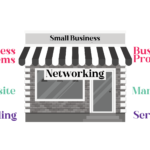
To sell anything effectively, it pays to understand the people who are likely to purchase it. If you’re trying to sell fish, for instance, the way you sell it to a Michelin-starred restaurant will be vastly different to the sales pitch to a zoo looking to feed their penguins. One is concerned with quality, the other is all about price (unless they have a particularly fussy Emperor in their enclosures).
Building a business to sell is no different. To get maximum value, you need to know what a buyer wants and is willing to pay for it. The answer is multi-faceted: from positioning via industry benchmarks and perfecting your brand, to attracting and retaining talent through your employer brand. In this series, we’ve previously discussed these areas and how marketing can help you build value, but one key element remains.
A buyer is interested in a company with a great foundation, sure, but it also has to have a future vision, and demonstrate its potential for scale.
Scaling up
Colin Mills—owner of our parent company the Liberti Group—didn’t coin the term “scaling up”, but his book Scale Up presents the clearest framework for understanding how it works.
When it’s founded, a business only has so much capacity and capital, and it’s focused on establishing and perfecting its product or service in the marketplace. No matter how great their product or service may be, many businesses hit a growth ceiling purely because something about the business itself needs to change in order to grow. How the business does business needs to change. That’s scaling up.
If a potential buyer can see potential for growth and scalability in a business, they’re more likely to buy. This is a matter of marketing – planning your business’ growth and how you’re going to present it to potential buyers. To show how your business can scale up with the best of them, you need to work on four key elements: leadership, people, process and forecasting.
Leadership
The first reason businesses fail to scale is leadership. Not even bad leadership, as such—just not business leadership. In startups, the leader is often the chief innovator behind the business’ offering—they may be technically gifted in the company’s core discipline, but when it comes to business leadership or strategic development they’re learning as they go. In the early stages of a business there’s usually a small team and the emphasis is on getting the offering out there so this approach is OK, but as the business grows, leadership becomes far more important.
How does marketing fit in? One word answer: brand.
A business’ brand is guided from the top. The leadership team must establish the brand—the mission, vision and values that guide the business—and exemplify it in everything they do. Marketing can help determine the brand’s values, making sure they’re communicated effectively within the business and beyond. Internal communications, team events and brand management become more important as a team grows and builds a culture: marketing is key to all of this.
People
You need to hire the right people in order to grow. You’ll need expertise you didn’t have at the start, and you’ll often need to expand capacity in multiple areas at once. If you’re growing your investment in marketing, you’re trying to grow your customer base, which means you’re likely to need to more salespeople, more admin people, and perhaps an upgraded CRM to handle the greater volume.
To attract and retain the right talent you’ll need a good employer brand. Employer brand is the external appearance of the organisation from an employee’s perspective: it’s made up of the business’ recruitment messaging and activities, as well as the website and what people are saying about the company online. It’s a point where marketing and HR have to come together, making sure that the workplace is somewhere people want to work.
Process
A profitable business with efficient processes is an appealing purchase that will attract a higher buying price. Businesses’ processes often happen organically in the early days, simply as ‘the way we do things’ as opposed to working to any great strategic plan. A focus on operations becomes imperative as the business gets bigger, but even then it can be surprising how many of these processes remain, unquestioned.
This goes for finance as much as it goes for sales and marketing, but as we’re solely interested in the latter here, it’s hard to overstate the importance of an effective marketing function within the business when you come to sell up.
To demonstrate scalability, you need a good idea of which marketing activities work for your business. Understanding how your marketing spend is paying off in real terms—Return On Investment—means you can optimise your marketing plans, and show potential buyers how increased investment in particular activities will deliver a predictable increase in results. Value comes from how well your business is performing now, and how well you can predict it will perform in future.
Forecasting
Forecasting is crucial for a business that has to demonstrate its ability to scale. Why? Because managing cashflow is a more serious concern when you’re looking to grow rapidly. You have to spend money to make money, and know what’s paying off and what isn’t.
Where is future growth coming from? Innovation, business development, talent and, of course, sales and marketing. On the marketing front, you need a watertight grasp of the important metrics: average lead time, conversion rates, average sales value and cost per acquisition. Marketing isn’t about the here and now, it has to be aligned with your business’ growth targets. Forecasting this growth allows you to set a marketing budget accordingly.
A business with a great set of year-on-year results will certainly be appealing to buyers, but one with a clear roadmap for scale is a far more appealing prospect, particularly when coupled with a demonstrably effective marketing function.
Buyers are looking for businesses with clear potential to grow. By focusing on these four areas, and quantifying exactly how your marketing is preparing your business to scale up, you can present them with a job half done – all they have to do is buy in, follow your plan, and reap the rewards. That’s an attractive offer for anyone – and it ensures a commanding sale price for you.
By Clare Methven, Founder and Joint Managing Director of The Marketing Centre
 About the author
About the author
Clare spent many years as a marketing consultant for big name brands including Jewson, Barratt and The Homes and Communities Agency and headed a team of 60 at London agency Phoenix plc. However there was a clear gap in the market that an agency could not serve;
The Marketing Centre was formed to provide senior level marketing experience and expertise to smaller ambitious businesses. It is now the UK’s fastest growing provider of part-time marketing directors to ambitious businesses.
http://uk.linkedin.com/in/claremethven






